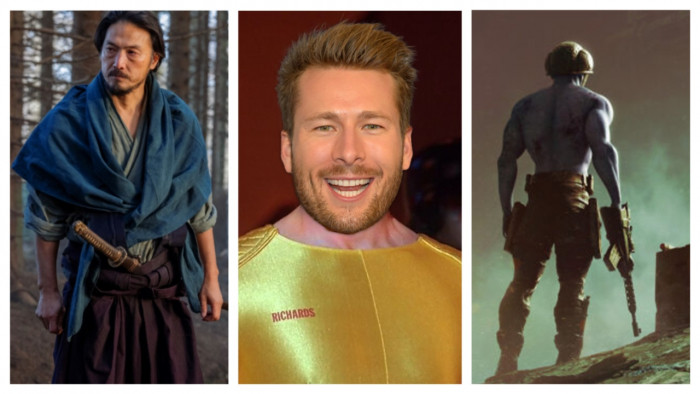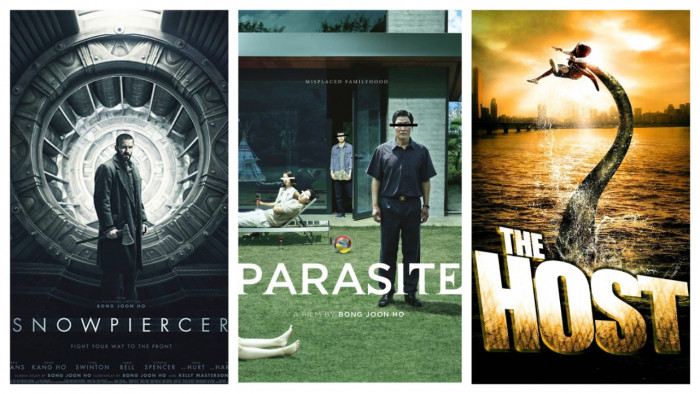Welcome to the world of Jake Gyllenhaal
Jake Gyllenhaal is famed for his versatility. But what of the Hollywood star himself?


Jake Gyllenhaal is famed for his versatility. But what of the Hollywood star himself? Chris Mandle meets the man of many parts to find out more
People try to act nonchalant, but when he enters the room everyone cranes their neck to get a good look. It’s hard not to make a fuss over him, to be honest. One woman gets up from her desk as he paces over. Broad-shouldered and shaggy-haired, he has this knack for acknowledging everyone individually with his own kind of lazy charm. After sniffing a carton of leftover pad thai, he sits down on the floor, stretches his back leg and scratches behind his ear.
Leo is a German shepherd, and his appearance in this humble Boston office is causing quite a stir.
He certainly seems more popular than his owner, Jake Gyllenhaal, who pops in and out of the building and its various offices without so much as a glance from those around him.
It might be because he’s on official business – Gyllenhaal is producing and starring in a new film set in Boston, and as such has been based here for quite some time doing the sort of boring, thankless tasks that aren’t meant to be done by a successful actor. The film is due to shoot in a few weeks, and the subsequent long hours go a long way to explaining the takeaway carton full of noodles, which someone has sensibly scooped out of Leo’s path and put in the kitchen. Disheartened, the dog walks off in search of something better.
Gyllenhaal might be getting less attention than his dog, but it turns out he too is in a playful mood. In person, it turns out, Gyllenhaal is a nice mixture of goofy, off-piste and sardonic.
Example: I’m sitting on a nearby chair when we first meet. Without speaking, he stands by my side and joins me in staring ahead at the wall (it’s the only bare wall in the building; two clashing tones of off-white paint are smeared across it haphazardly).
“That wall needs a new lick of paint,” he muses as we walk through his office. “What are you doing tomorrow, got an hour to spare?” He unleashes a robust giggle. “I’m just kidding,” he adds, before turning mock-stony faced. “I’m actually very busy at the moment.”
His thick hair is noticeably long and messy, but later this week it will be tamed and slicked back on top of itself for his appearance on The Tonight Show Starring Jimmy Fallon in a kind of Teddy-Boyish homage to Don Draper. For now, though, he’s low-key: loose camel khakis, a grey T-shirt and a pair of beaten-up Nikes.
“Don’t you trust your first instinct of someone?” he asks, during our afternoon together. My answer is yes. “So… do you find that you have a good sense of somebody when you first meet them?”
Again, the answer’s yes. “Good,” he replies. “Me too.”
I have come to Boston to try to get inside Jake Gyllenhaal’s head. It is a complicated place.
Demolition Man
The fact that the most opportune time to speak to Gyllenhaal about his new film, Demolition – the bleak and oddly comic drama directed by Dallas Buyers Club’s Jean-Marc Vallée – is while he’s working on his next project speaks volumes about the 35-year-old’s schedule. We pop down to the deli beneath his office, an old-school haunt whose green awnings are finished with a pie-crust trim, and grab two coffees in polystyrene cups.
Back in his office, Gyllenhaal’s eating something from his hand. Something thinly sliced, almost translucent and sounding vaguely crunchy as he tells me about his childhood. His four best friends grew up around New England, he says. “This [Boston] is a town I love, and I love it particularly because the people I love the most are all from here, and…” he pauses. “What are you looking at?”
Are you eating raw onion?
“No!” he says quickly.
It looks like you’re eating raw onion, I say. He starts laughing again.
“No,” he says, more slowly. “It’s just sliced fennel.”
He gestures to a blue-lipped Tupperware box and prises it open; an aniseedy smell fills the space between us.
“Don’t be fascinated by it,” he says, closing it shut. He’s talking very slowly, chewing and chewing, staring at me. Fennel has a number of beneficial health properties, but if Gyllenhaal’s bouts of silence are anything to go by, it’s apparently a pain to chew raw.
It’s St Patrick’s Day, something Bostonites take very seriously – it’s not uncommon to get a nip or a punch from a stranger if you’re not wearing green. “I guess,” Gyllenhaal says idly, swallowing his fennel. “I can’t get pinched.” He opens his mouth, which is stained green. I flash my olive-green watch strap in his direction like we’re playing some kind of Top Trumps, a kind of Fifty Shades Of Green. “That looks like something you wear on a daily basis,” he says, shaking his head. “Doesn’t count!”

Method acting
Gyllenhaal has developed a knack for choosing powerful roles that resonate with audiences and critics alike. He’s been praised for slipping into his roles, for physically changing before our eyes. In Southpaw, he transformed into a tattooed man-hulk thanks to a punishing regime that saw him perform, among other things, 2,000 sit-ups and an eight-mile run every day.
And in the morbid Nightcrawler he did the opposite. To take on freelance cameraman Louis Bloom he starved himself so he looked taut, brittle and emaciated, all hollow-cheeked and sunken-eyed.
But for Demolition, it’s a purely emotional transformation. As successful city boy Davis Mitchell, Gyllenhaal plays a white-collar banker whose wife is killed when the two are in a car accident. But Davis feels no grief when he learns of the horrible news, instead becoming distressed by a faulty vending machine in the hospital. This sets him off on a strange journey of reflection, mourning and catharsis, as he questions his entire life’s choices and seems to remedy his emotional void by tearing his life apart. The film is meticulous, cerebral, destructive and funny, like an emotionally tuned kaleidoscope.
“It made me uncomfortable to not emote,” Gyllenhaal explains. “You know, my conventional instincts came in a lot [at first]. But Jean-Marc just wanted me to be myself initially. There wasn’t a lot of research and rehearsal.”
People have found the film’s relentlessly un-rosy ideals quite refreshing, which Gyllenhaal says was kind of the point. “Jean-Marc walked into the story saying, ‘I’m going to be as honest as I can about how an individual grieves or discovers who they are.’ We were just at SXSW and it was pretty incredible to listen to the audience, because they were just freely moving into the laughter and then actually feeling really deeply moved. It was a wonderful experience to be a part of. To feel that with them.”
There’s more than one moment in the film when you feel bad for laughing; it’s almost intrusive.
“Which is so interesting,” Gyllenhaal says brightly. “Because again, that’s what the movie is about. I think feelings are so much more complicated than movies tend to make us – or tell us – we’re supposed to feel. I don’t believe in that.”

Rip it up
Demolition’s title is, you may have guessed, a metaphor. But one of the most satisfying set pieces is when the title is taken literally. Aided by his new friend, a rebellious queer kid named Chris (played by Judah Lewis), Davis destroys his pristine, sterile life by ripping apart his deluxe apartment. “When you have eBay, you can buy pretty much anything,” he explains in the film, as a JCB is delivered to his street.
“It was pretty darn cool to have a line of tools and then someone saying, ‘You can pick any one of them. Saw this couch in half. Tear this wall down.’
“They built an entire section of a house and told us, ‘You can tear it all down and we’re going to film it. We’ll get the right angle, you go destroy it, then we’ll stop. And you can break something else.’ I had great fun doing it.”
It’s immensely rewarding to watch all of these markers of opulence, wealth and privilege getting ripped apart and permanently ruined.
People kept turning up and watching Gyllenhaal destroy the place. “There’s a general sort of interest in demolishing things, I guess,” he says. “That’s the weird thing about it.”
There’s a scene in the middle of Demolition where a much more Zen Davis begins dancing in the middle of New York. Set to Mr Big by Free, Gyllenhaal tucks his thumbs into his trousers, gyrates his hips, slides down a bannister and pulls off the kind of moves your dad would be proud of. In keeping with his enjoyment of throwing his actors in at the deep end, Jean-Marc came up with the whole thing on the spot.
“We shot for, like, four hours just wandering around downtown Manhattan – me dancing in construction sites and us finding huge crowds, dancing with commuters and stuff,” he says.
“There comes a point, beyond embarrassing, which is really freeing,” Gyllenhaal says. “I think every time I pass through that embarrassing door, I’m so happy I did.” He likens the euphoria to having a few glasses of wine. “Yeah, sort of like that. Without the next morning.”
Our time with Gyllenhaal flickers between the intense and the inane. “I live a relatively mellow life,” he muses, looking up at the bright blue sky. “I can guarantee you mine is more mellow than yours.”
What makes him think that I don’t live a mellow life? “You just sound like you’re wild,” he says. “I talk about dancing, you talk about five glasses of wine. Wild.”

Start again
Though he’s having a nice time in Boston, Gyllenhaal reminds us he’s here for work on an upcoming film, Stronger, due out in 2017. In it, he takes on another challenging role – that of Boston Marathon bombing survivor Jeff Bauman.
“It’s a very particular kind of story,” he says. “The marathon, and the events around it, exist on the periphery of the story.”
The film is based on Bauman’s autobiographical book of the same name, and focuses on the events in his life after the terror attack, rather than the actual bombings themselves.
“The movie’s about him and his now wife – and their love,” he says. “So they’re pretty incredible people, really open and sharing, so in that sense it’s been going wonderfully, it’s a fantastic script.”
Throughout the past hour, Gyllenhaal’s phone has been buzzing and pinging, but until now he has largely ignored it. Suddenly, though, his eyes are wide. He’s late for a meeting with his director.
“You can talk the ears off a donkey,” he says, as we go outside. Leo wags his tail and comes over. With a quick handshake, our time together comes to an end.
“If this movie’s not that great, it’s going to be your fault,” Gyllenhaal says, once again letting off his bazooka-blast of a giggle. “We have to make a movie!”
Demolition is at cinemas nationwide from 29 April
(Images: Allstar, Fox, Getty)
Latest
Related Reviews and Shortlists









